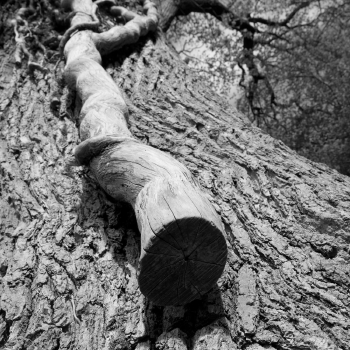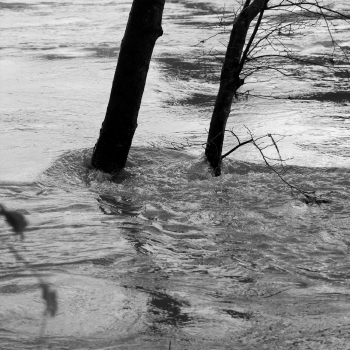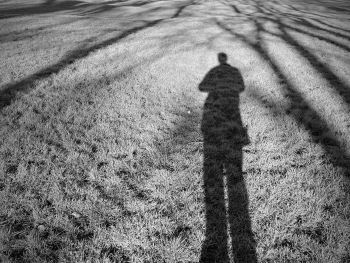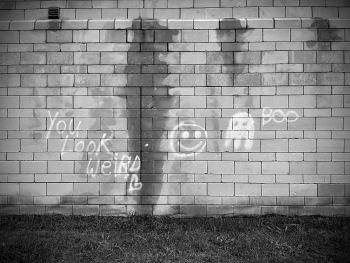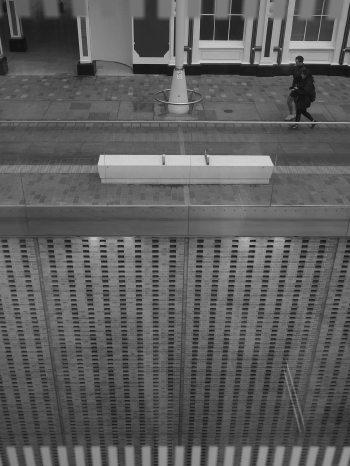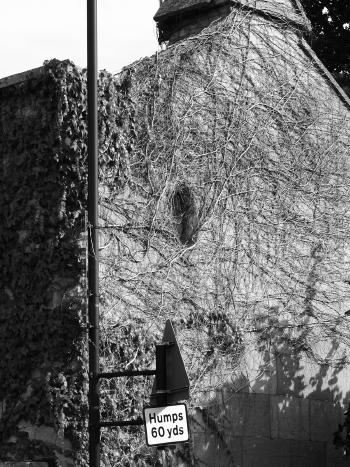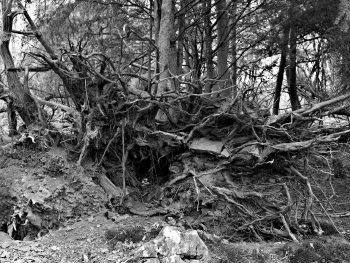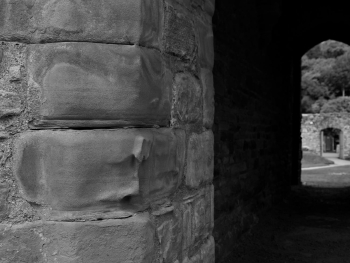I struggle with the idea of taking black and white photographs. It feels like an affectation and also a waste of the colour that was there. But I love black and white photographs. They can pick out shapes and details that colour can’t, they can feel timeless, and they are beautiful. So what’s my problem?
I think that a good deal of it is down to a sneaking sense that my choice to make a black and white photograph isn’t truthful.
My camera, like almost all digital cameras, has a sensor that senses colour. I shoot in RAW, which means the files it saves are the pure data that comes off the sensor, and thus they describe the red, blue and green light that shone into it. My camera has a black and white mode, which means the viewfinder shows a black and white image, and I can have it automatically crunch that colour data and save a black and white JPG, but I like RAW because it carries much more data, such as detail in the shadows and highlights.
And that means that if I want to shoot in RAW, I must apply black and white later as an effect, and this feels like a — well, it feels like a cheat. It wasn’t forced on me by the tools I had; it wasn’t what I saw; and I feel I’m being dishonest.
Maybe this air of dishonesty is behind some of the isn’t-it-pretentious sentiment that’s attached to the idea of black and white. I recently enjoyed Ripley, a new TV series retelling of Patricia Highsmith’s thriller, The Talented Mr Ripley. It’s shot (almost) entirely in black and white, with some extraordinarily beautiful compositions of crumbling Italian villas and wet winter streets. For me, it helped seal the 1960s setting and also to underscore a general and fitting emphasis on light and shade. But I noticed that Private Eye (No. 1622) wrote it off as pseudy:
Netflix has increasingly seemed a streamer desperate to be a movie studio (Maestro led its most recent slate of Oscar contenders) and these cinematic longings are apparent in the decision to shoot Ripley artily in black and white, for no obvious reason except possibly having heard during pre-production that Sir Christopher Nolan was using a lot of that stock in Oppenheimer.
It’s like, now we can shoot in colour, anything else is an affectation, unless you have a really good reason. And that’s bullshit, yeah?
So I know there’s madness in my reticence. Don’t I already apply styles to pictures by editing them, cropping, changing cast, raising contrast? And isn’t it great to have the creative freedom to explore what black and white can bring to an image that would otherwise be colour?
In other hands, maybe. But I think about loss, and how, when I have a fabulously colourful RAW file, turning it to black and white feels like throwing something valuable away.
More significantly, though, I think about how boundless creative freedom paralyses me. Constraints are great, especially for amateurs like me. I know I’d feel a lot happier, in the moment of taking that picture, only to be thinking of black and white. But at the touch of a button, my camera allows anything, and “anything” constantly tempts me with the possible.
There are digital cameras that can only take black and white pictures. Here’s Michael C. Johnston at The Online Photographer arguing persuasively for them:
The experience is really the main thing about [taking pictures with a dedicated black and white camera]. And it’s not very complicated…it’s simply that it enables you to ignore color, see tonally, and not have to constantly decide whether a particular shot should be color or not. Which for some people helps them concentrate. Personally, as I’ve written, I’m unable to concentrate exclusively on B&W when I’m shooting with a color sensor. I see how the camera sees, meaning, both ways, color and B&W simultaneously, so I continually have to make decisions about what kind of shots I’m looking for. It drives me nuts.
As intensely appealing as they are, I’m not sure I can personally justify buying one. And so I struggle with black and white photography, and the sporadic black and white photographs in my library reek of arbitrary-ness. I don’t think they’re very good. But here are some of them.
